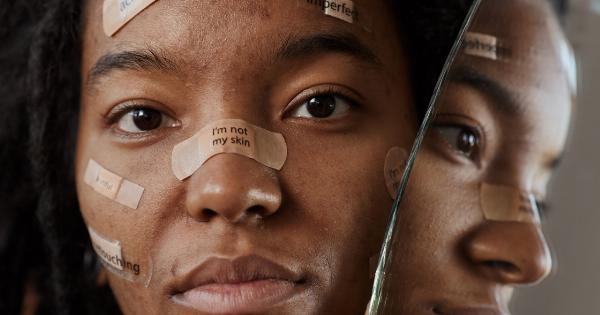Acne is usually associated with adolescence, but it can also affect adults. In fact, adult acne is more common than you might think.
It can be frustrating to deal with acne breakouts well into adulthood, but understanding the causes behind it can help in finding effective treatments. In this article, we will explore the various factors that contribute to adult acne and how you can manage this condition.
1. Hormonal Imbalance
One of the leading causes of adult acne is hormonal imbalance, particularly an increase in levels of androgens. Androgens are hormones that stimulate the sebaceous glands to produce more sebum, which can clog pores and lead to breakouts.
Hormonal fluctuations can occur during certain times such as pregnancy, menopause, or even during the menstrual cycle in women.
2. Stress
There is a strong correlation between stress and acne breakouts in adults. Stress triggers the release of cortisol, a hormone that stimulates the sebaceous glands and increases sebum production.
Additionally, stress weakens the immune system, making it more difficult for the body to fight off acne-causing bacteria. Managing stress through relaxation techniques, exercise, and adequate sleep can help reduce the occurrence of acne breakouts.
3. Medications
Certain medications can also contribute to the development of adult acne. Medications containing corticosteroids, androgens, or lithium have been known to trigger acne breakouts.
If you suspect that your acne is a side effect of a particular medication, it is important to consult with your healthcare provider to discuss alternative options or potential solutions.
4. Cosmetics and Skincare Products
Using the wrong cosmetics or skincare products can exacerbate adult acne. Products that contain comedogenic ingredients, which can clog pores, should be avoided.
Look for non-comedogenic or oil-free products that are specifically formulated for acne-prone skin. It is also crucial to remove makeup thoroughly before going to bed to prevent buildup and clogged pores.
5. Diet
While the relationship between diet and acne is still a subject of debate among experts, certain foods have been linked to increased acne breakouts. Diets high in refined sugars, dairy products, and processed foods may worsen acne symptoms.
On the other hand, consuming a balanced diet rich in fruits, vegetables, whole grains, and lean proteins can support overall skin health.
6. Environmental Factors
Environmental factors can play a role in adult acne as well. Exposure to pollutants, high humidity, and excessive sweating can contribute to clogged pores and breakouts.
If you live in a polluted area or work in a high-stress environment, it is important to cleanse your skin thoroughly and protect it from the elements using appropriate skincare products.
7. Genetic Predisposition
Some individuals may have a genetic predisposition to developing acne. If your parents or close relatives have a history of acne, you may be more prone to experiencing adult acne as well.
While you cannot change your genetic makeup, understanding this factor can help you manage and treat your acne more effectively.
8. Hormonal Changes
Aside from hormonal imbalances, other hormonal changes in the body can trigger adult acne. This includes conditions such as polycystic ovary syndrome (PCOS) and hormonal fluctuations associated with thyroid disorders.
Seeking medical advice and addressing underlying hormonal issues can help manage and improve adult acne.
9. Poor Skincare Routine
A lack of proper skincare can contribute to adult acne. Failing to cleanse the skin regularly, using harsh cleansers or scrubbing too vigorously can irritate the skin and lead to breakouts.
Adopting a simple skincare routine that includes gentle cleansing, moisturizing, and application of non-comedogenic products can make a significant difference in managing adult acne.
10. Lifestyle Choices
Unhealthy lifestyle choices can impact adult acne as well. Smoking, excessive alcohol consumption, and a lack of regular exercise can all contribute to skin problems.
Making healthier choices such as quitting smoking, moderating alcohol intake, and incorporating exercise into your routine can help improve overall skin health and reduce the frequency of acne breakouts.
In Conclusion
Adult acne can be a frustrating and persistent condition, but understanding its underlying causes can help in managing and treating it effectively.
Hormonal imbalances, stress, medications, cosmetics, diet, environmental factors, genetic predisposition, hormonal changes, poor skincare routines, and lifestyle choices can all contribute to adult acne. By making changes in these areas and working with healthcare professionals, you can find an acne management plan that works for you.































